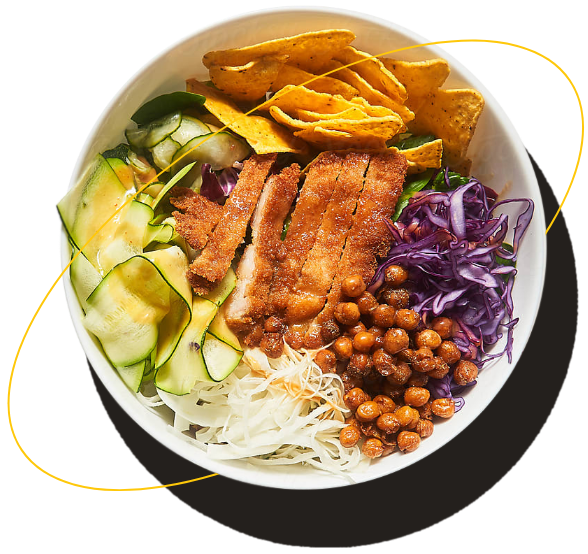Wrapping up a whirlwind Fall and looking ahead to COP28
2023 November 28
As I previewed in my last article, the Meat Institute was proud to host the second annual Protein PACT Summit last month in San Diego. At the summit, we also debuted our second continuous improvement report, (you can access a summary infographic or read the full report here).
Momentum continues to grow for this first-of-its-kind data collection and reporting effort. Before 2022, our sector had no history of aggregating experiences in this way and presenting measurable indicators in key focus areas. In our first year, data collected already represented an estimated 90% of meat sold in the United States, and that has only grown.
In 2023, the number of companies submitting data grew by 59%, covering 25% more establishments – data now reflects action in more than half of all facilities operated by Meat Institute members.
This growing data set is a remarkable achievement, but it also presents challenges. Newer participants are more likely to be at earlier stages of implementing practices to achieve Protein PACT targets. In some cases, we have also updated metrics to more accurately capture practices and/or to segment by species.
For this reason, each year’s report provides achievement snapshots on the basis of that year’s data only, rather than as a comparison with previous years. Growing our data pool is itself a key target. We believe every company has a role to play, and we are committed to helping every member start and measure its continuous improvement journey.
As Meat Institute CEO Julie Anna Potts explains in the report’s introduction, this mission has never been more important. Earlier this year, the UN Food and Agriculture Organization emphasized in a landmark report that animal-source foods offer crucial sources of much-needed nutrients which cannot easily be obtained from other foods. Producing these foods in a way that can continue to sustain generations to come is at the heart of our Protein PACT vision.
We have continued to share that vision with new audiences, pushing ourselves to get outside the agriculture bubble and connect with sustainability-focused leaders in a wide variety of settings.
To that end, the Protein PACT helped sponsor the October Sustainable Brands Conference. In a breakout session titled “Animal Agriculture Driving Sustainability and Food Security Solutions: Principles, Practices, and Proof,” the Protein PACT welcomed experts who shared evidence regarding livestock’s climate impacts, as well as practices across the supply chain to continuously improve that impact.
I took the opportunity to share about the Meat Institute’s continuous improvement goals and our data report efforts to verify progress.
Dr. Frank Mitloehner (Director of the CLEAR Center, UC Davis) asked the engaging and thought-provoking question at the heart of so many sustainability debates: What if cattle are actually part of the climate solution? He discussed how everything from what cows eat to how their manure is managed can aid in our collective emissions reduction targets.
National Pork Board Chief Sustainability Officer Jamie Burrdiscussed U.S. pork’s WeCare ethical principles and how they focus on environment, food safety, animal well-being, people, community, and public health to provide delicious, nutritious, and sustainable pork products to families everywhere. Jamie shared that over the past six decades, pork production has improved by using 75% less land, 25% less water, 7% less energy, and 8% fewer carbon emissions.
Applegate President Joseph O’Connorshared the experience of taking sustainability principles into action as a consumer-facing brand. Applegate employs holistic animal production and regenerative agriculture practices, whose benefits include building soil fertility, increasing water percolation and retention, and increasing biodiversity and ecosystem resiliency.
Bringing valuable perspective from the farm, Fresno Livestock Commission Managing Member Cindy Tews discussed what sustainability means to beef farmers and ranchers who are dedicated to producing beef in a way that prioritizes all aspects of sustainability – environmental, economic, and social.
Sharing these perspectives and advancing understanding of animal agriculture’s role in sustainability solutions is a top priority for the Meat Institute and our Protein PACT partners. In December, we’ll be joining the world’s sustainability leaders at the UN Climate Summit (COP28) in Dubai.
We’re excited to see increased focus on the power of food systems to deliver sustainability and food security solutions, and we firmly believe that nutrient-dense foods like meat and dairy are central to achieving that vision. That’s why the Protein PACT is committed to being present in these critical conversations. We will once again be a sponsor of the Sustainable Agriculture of the Americas pavilion, and we look forward to participating in expert-led panels and events throughout this important Summit.
For more Protein PACT updates, including impressions as we join COP28, follow us here on LinkedIn or on our other social media channels (Twitter, Instagram, Facebook). If you don’t yet receive our quarterly Protein PACT newsletter and are interested in subscribing, contact me at emittenthal@meatinstitute.org.
Read the article on LinkedIn.

